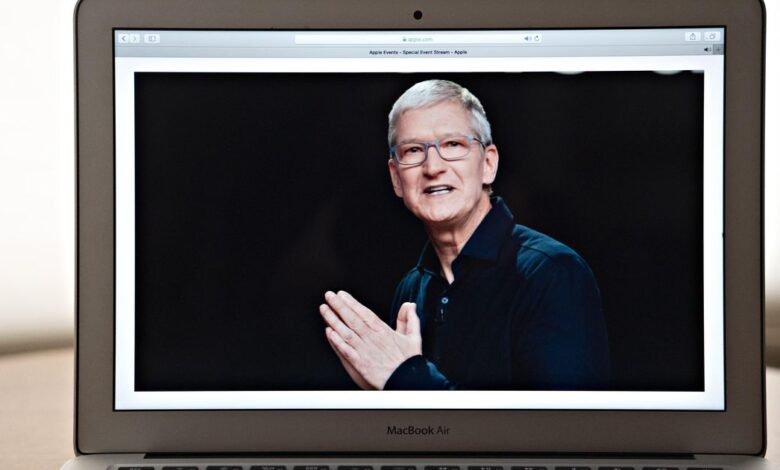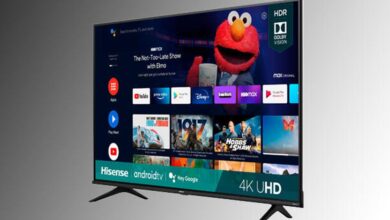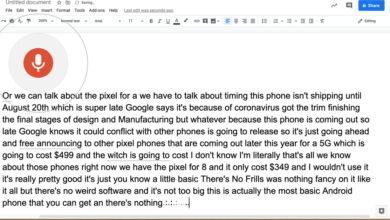Apple’s Tim Cook grilled by judge overseeing Epic’s Fortnite trial

[ad_1]
Getty Images
For the past three weeks, a mix of Apple executives and experts have defended the company’s policies that tightly control how apps work on the billion active iPhones around the world. Fortnite maker Epic Games sued Apple in August, saying its behavior stifles competition within the iPhone’s world. On Friday, Apple CEO Tim Cook found himself answering pointed questions about competition from the person who’ll be deciding the case, US District Court Judge Yvonne Gonzalez Rogers.
Over a period of about 14 minutes at the tail end of Cook’s four hours of testifying in court, Rogers challenged Apple’s business model in the name of the very competition Epic is arguing for.
“You would agree with the basic proposition that competition is good?” she asked the Apple chief.
Cook responded, “I think competition is very good. We have fierce competition.”
But, Rogers said, Apple doesn’t have competition in ways that could matter. Epic had argued that one Apple policy was monopolistic: requiring app developers to use its payment processing service on the iPhone and pay up to a 30% commission to the tech giant. It appeared as though Rogers might agree. “You don’t have competition for those in-app purchases,” she said.
The somewhat surprise grilling was unusual in Silicon Valley, where executives typically give few interviews, and typically to a friendlier audience. Rogers, who’s overseeing one of the biggest tech antitrust trials in decades, kept at the idea of competition throughout her questions to Cook. She suggested concern over how little pressure Apple has from developers or other companies to change its policies or commission rates.
Apart from his answers to Rogers, Cook went through his day of testimony without revealing previously unknown details about his company, or providing new insights into how it works. Other Apple executives, including head of the App Store Phil Schiller, spent the past three weeks explaining to the court how Apple’s app review processes work, what kind of fraud the company’s been able to fight and the decisions it’s made that led to this point.

Apple CEO Tim Cook gestures while exiting US district court in Oakland, California, on Friday.
Getty Images
For Cook, this courtroom visit is the latest in a string of appearances where he’s faced questions from a potentially hostile audience. In the past couple of years, he’s found himself increasingly questioned by lawmakers and the press about his company’s substantial power.
Apple has tallied more than 1 billion active iPhones in the world. Despite the coronavirus pandemic and its accompanying economic catastrophe, Apple notched the largest sales and profit in its history during last year’s holiday shopping season. That’s helped push the company’s value on Wall Street to more than $2 trillion.
Epic says some of Apple’s success was won through forcing developers to use its App Store, the only place users have ever been allowed to download apps for iPhones and iPads.
Below are some key details from Cook’s testimony, which we reported live as they developed:
Judge questions competition
[12:55 p.m. PT]
Once Epic’s and Apple’s lawyers were done with their direct examination, cross-examination, redirect and so on, Rogers took the opportunity to ask Cook a series of questions herself.
Rogers noted that despite Apple saying competition is good, “You don’t have competition for those in-app purchases.” Cook responded that the competition is with other platforms like the Microsoft Xbox, Sony PlayStation or Nintendo Switch.
She then brought up Apple’s small-business program, which lowered App Store commissions to 15% for developers making less than $1 million per year. “At least from what I’ve seen thus far, that really wasn’t the result of competition,” she said. “That’s the result of pressure you’re feeling from investigations and lawsuits, not competition.”
Cook responded, “It was the result of feeling like we should do something from a COVID point of view, and then electing instead of doing something temporary to do something permanent.”
Rogers pressed further. “It wasn’t competition,” she said.
“It was competition in that after we dropped to 15, Google dropped to 15,” Cook said.
Rogers interrupted as he continued, “I understand perhaps that Google changed its price, but your action wasn’t the result of competition.”
Cook said it was the result of wanting to do something for small developers.
Gamers subsidize banks
[12:24 p.m. PT]
Rogers noted that “a significant portion of in-app purchases come from gamers,” and Cook agreed.
“So what is the problem with allowing users to have choice, especially in a gaming context, to have a cheaper option for content?” she asked.
Cook responded that they do have choice today, “They have choice between many different Android models of a smartphone, or an iPhone that has a certain set of principles behind it including safety and security and privacy.”
After Rogers pressed further, Cook added that in-app purchases are how Apple gets a return on its intellectual property, an argument his lawyers and executives raised earlier.
“But you could also monetize a different way, couldn’t you?” Rogers asked. She added that the gaming industry is generating “a disproportionate amount of money” and effectively subsidizing everyone else.
Cook said the free apps, which make up most of the apps in the store, do get a kind of subsidy, but he said they also attract people into the store, which benefits the companies by giving them more of an audience to sell to. “We need a return on our IP,” he said, adding that there are 150,000 APIs Apple maintains, along with customer service, transactions and other things.
Rogers then noted that her Wells Fargo banking app is free, which means a massive company is getting a free ride on Apple’s App Store after paying the $99 developer fee.
“But you’re charging gamers to subsidize Wells Fargo,” she said. “It’s just a choice of a model.”
Cook agreed that Apple “made a choice. There are clearly other ways to monetize and we chose this one because we think this is the best way,” he said.
“Well, it’s quite lucrative,” Rogers said.
More on China
[12:06 p.m. PT]
After Epic’s lawyers finished their cross-examination, Apple’s lawyers helped Cook refute some issues during redirect examination. Among them, Cook noted that aside from Chinese users’ iCloud data being stored in the country, Apple offers essentially the same experience.
“We ship the same iPhone in China that we ship everywhere else in the world. It has the same encryption on it, it has iMessage on it, and other than the iCloud piece, it’s the same,” he said. Cook also said that regarding privacy, all the same features are there too, including intelligent tracker prevention, app tracking transparency and app nutrition labels.
China privacy
[11:12 a.m. PT]
Apple hasn’t just had to contend with Epic’s antitrust suit. The New York Times published a story Monday outlining Apple’s complicated relationship with the Chinese government. One of the story’s revelations was that Apple potentially reduced Chinese users’ data, and proactively took down thousands of apps from its App Store that could run afoul of the Chinese government’s laws.
Epic’s lawyer suggested that allowing third-party app stores would take pressure off Apple, reducing the danger of Apple being generally barred from China for what happens on an app. Epic, for example, refused to work in Vietnam over privacy fears, he said.
Cook pushed back, saying Apple follows the laws in places it operates. “I strongly believe it’s in the best interests of the people there that we do operate,” he added.
Also worth noting: Chinese tech giant Tencent owns about 40% of Epic. Epic has said in the past that Tencent doesn’t have any say in its day-to-day operations. CEO Tim Sweeney said two years ago that he was the controlling shareholder, and has been since 1991.
Other app stores
[10:52 a.m. PT]
In cross examination, Epic’s lawyer pushed Cook on the possibility of having alternative app stores available on the iPhone. The lawyer asserted that even if there were alternative stores, Apple could still run its own and it could use its marketing might to convince people to use its store.
“It seems like a decision they shouldn’t have to make,” Cook said. “When they buy an iPhone today, they just buy something that works.”
The two did agree, though, that they wouldn’t know whether Apple would succeed in this hypothetical situation, because it hasn’t been done.
Google deal
[10:27 a.m. PT]
Apple and Google have a famously odd relationship. Google’s former CEO, Eric Schmidt, sat on Apple’s board when the iPhone was launched. The two companies worked together on a version of Google Maps for the iPhone for years before Apple Maps launched.
But as Google’s Android grew, Schmidt left the board and the two companies took a more competitive stance. They still work together, though. For instance, Apple has an agreement with Google to make the tech giant’s search the default for Safari searches on the iPhone, iPad and Mac.
Epic’s lawyer pushed, noting public reporting that suggested Google paid as much as $10 billion for that deal. Why pay so much? Cook said it was a question better put to Google.
Epic’s lawyer pushed again. Cook eventually answered, “I believe they paid for search results, which they get from being the default search engine.”
Who are your competitors?
[9:44 a.m. PT]
During the trial, experts from Epic and Apple debated one of the odder contentious issues of the lawsuit: Who does Apple compete with on operating systems? Some argued Apple has no competitor, others said it competes with Google.
When one of Epic’s lawyers asked Cook to settle the debate, and say who he believes Apple’s competitors are, Cook said Apple competes against the devices Google’s software enables. So he sees Samsung and others as competitors.
“So your testimony is that you do not compete against Google in operating systems?” Epic’s lawyer asked.
Epic then played a video of Cook speaking at a meeting of Berkshire Hathaway shareholders in 2019, in which he gives his boiler plate speech about how Apple competes against Microsoft and Google “on the operating system side” and against Samsung, Huawei and other phone makers “in the hardware space.”
The lawyer then asked Cook if that video showed him saying those words.
“Well, that certainly looked like me,” Cook said. “And it sounded like me too.”
Green bubbles
[9:10 a.m. PT]
Epic’s lawyers at one point have raised the argument that iMessage is one of the features Apple uses to lock users into iOS. The service offers encrypted chat by default and makes it easier to share video and photos. Additionally, when you use iMessage, the chat bubbles are blue. When you use SMS, like when texting with an Android user, the chat bubbles are green.
Some people argue that the status of having a blue bubble keeps people on iPhones, especially since iMessage isn’t available for Android. Cook disagreed. He noted that it’s easy to turn off iMessage if people want.
Generally, Cook said he believes it’s easy to switch from Apple to Android. He noted that photos in particular are easy to move between Google, Facebook and Apple. And, he added, the popularity of streaming music and movies means you just need to redownload the app and sign in on your new device.
Billboard
[8:51 a.m. PT]
Epic and Apple spent much of the past three weeks arguing over one sticking point: that Apple doesn’t even allow app developers to have a notice in their app saying customers can go to their site to pay a lower price to buy something or sign up or whatever else.
Cook sees allowing developers to point users to their website for discounts as akin to putting up a sign outside Best Buy saying they’d get a better deal on an iPhone at the Apple Store. “It’s the same kind of thing.”
Economic ‘miracle’
[8:46 a.m. PT]
Cook talked about the impact of the App Store. “I think it’s been an economic miracle,” he said. Apple started with 500 apps, and now has 1.8 million. He noted that almost 2 million people are estimated to have had jobs created through the app store. He said commerce, according to one study, is half a trillion. “It’s likely been one of the most important job segments out there in a growth point of view over the last decade,” he added.
One of the most important issues
[8:26 a.m. PT]
Cook began his testimony by bolstering Apple’s argument before the court that its control is about its commitment to privacy and security. “Privacy, from our point of view, is one of the most important issues of the century. And safety and security are the foundation that privacy is built upon.”
He also equated these issues with civil liberties and freedom of expression.
Judge gives indications
[8:12 a.m. PT]
Rogers, who’ll be ruling on this case instead of a jury, has tipped her hand a couple of times during the trial. She’s expressed doubt about some of both companies’ arguments — in Epic’s case, the game company’s argument that Apple is a bad marketing partner. And in Apple’s case, its acknowledgement that it hasn’t studied whether other app stores or app moderation companies could do a better job than Apple’s App Store review team.
As court was starting Friday, Rogers asked lawyers to include in their final filings some discussion of “remedies,” or how to solve this problem. She said she’s still debating the question of whether Apple has an illegal monopoly over its own products. And she said the lack of competition for 30% commissions worries her.
Cook is in court
[7:53 a.m. PT]
A group of reporters were waiting for Cook outside the courtroom Friday, but rumor was that he entered through the garage. So, no iconic photos of him walking up.
Well, Tim Cook sneakily entered the courthouse through a side entrance through the garage, rather than the main public entrance. There will be some very annoyed TV producers today. pic.twitter.com/EdHsEo0AzT
— Bobby Allyn (@BobbyAllyn) May 21, 2021
[ad_2]
Source link






